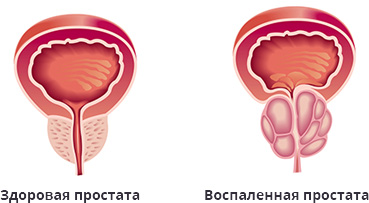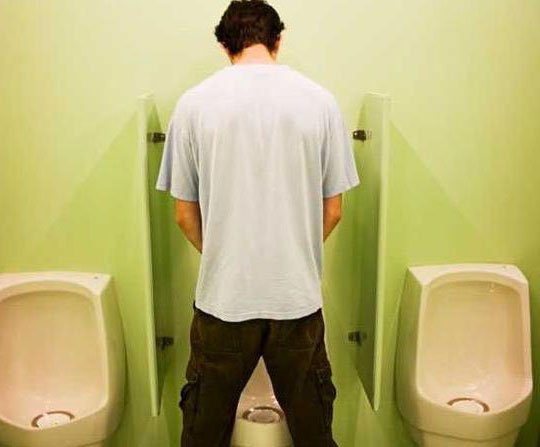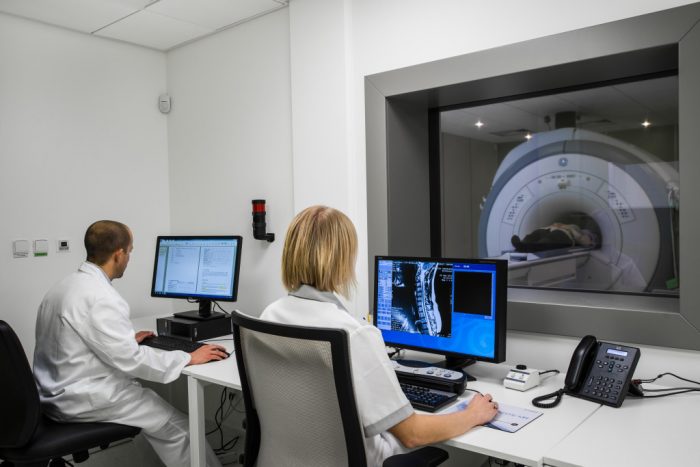If the process of emptying the bladder is impossible, a feeling is constantly present. When the process does not occur, this indicates the presence of some kind of pathology. For example, trauma to the brain (spinal). Anuria and, these are different pathologies. With anuria, urine does not enter the urea at all.
Causes of urinary retention
Delays in the outflow of urine with pain symptoms and incomplete emptying occur when:
full bladder
- urolithiasis;
- narrowed area of the foreskin of the organ;
- hematomas or aneurysms in the pelvic area;
- infectious pathologies;
- inflammatory processes of the prostate gland, the head of the organ;
- injury to the urethral canal or urea.
Additional symptoms may include:
- bleeding with the discharge of blood clots;
- tumor formations of the urea, prostate and other organs in the small pelvis;
- congenital pathological structure of the urinary system, which becomes an obstacle to the normal outflow of urine;
- benign formation (adenoma).
When a man complains to the doctor - I can’t write what to do - in men, a pathological phenomenon may occur accompanied by another disease:
- multiple sclerosis;
- damage to the brain or spinal cord;
- severe intoxication with alcohol, drugs, sleeping pills;
- hypothermia;
- frequent stressful situations;
- impossibility of timely emptying of the urea;
Sometimes urination is disturbed due to other reasons:
 Prostate diseases
Prostate diseases - prostatitis;
- urolithiasis of the urethral canal, urea;
- adenoma;
- phimosis;
- neoplasms;
- prostate cancer;
- CNS pathology.
An acute absence of the process of urination can occur in a state of extreme intoxication, after suffering severe stress, hysteria, surgery on the rectum, perineum, after prolonged bedridden, drug poisoning.
Explaining the causes of urinary retention
Frequent interruptions or acute retention of urine marked prostate adenoma in a strong half of the population over the age of sixty years.
A sedentary lifestyle, frequent diarrhea or constipation are characteristic of adenoma. In this case, urine can not depart in full. Sometimes there are traces of blood in the urine, the patient feels an increase in temperature. With fractures of the bones in the hip, trauma to the urethra, there may also be retention of urine.
Acute delays have a peculiar course.
 Urine does not flow
Urine does not flow - Initially, urine flows well, then it stops. At the same time, the urea is not completely emptied. When patients cannot completely empty their bowels, this warns of stone formations in the urethral tubule or urinary ducts. When a man changes body position, he can urinate (establishing an outflow).
- With constant delays in urine, the walls of the bladder, the sphincter get gradually stretched. During such a pathological process, incontinence is possible, urine can be rejected by drip or in small portions.
- When there are pains in the inguinal zone, cramps during the outflow of urine and the desire to visit the toilet. In this case, catheterization is performed with further examination to detect the initial factors that led to the pathological phenomenon.
Carrying out diagnostic manipulations
In order to make a diagnosis of the pathological process, one should not forget that difficulties with urine output are not a separate pathology, but a complication of an acquired or congenital disease. This suggests that the identification of an unmistakable cause of the pathological process is responsible for the effective treatment of this manifestation.
To identify the factors that led to such discomfort, a competent diagnosis is carried out. With difficult processes of outflow of urine, a painful syndrome is noted, but such a sensation also occurs with other pathological changes.
The specialist reveals a painful characteristic in order to continue the differential diagnosis.

Diagnosis is carried out with confirmation of the results of plasma and urine tests.
The specialist may prescribe an ultrasound examination to determine the size, thickness, presence of foreign objects in the urea.
Methods of medical manipulations
To prescribe the treatment of unpleasant phenomena in the form of urinary retention, it is required to identify the underlying disease that provoked this process.
Urologists prescribe anti-inflammatory drugs, antibacterial agents. To prevent acute pathology, catheterization is used (this is a one-time assistance, for further medical therapy). Often, patients use alternative treatment using traditional medicine.
With a disturbed outflow of urine for a mechanical reason, sometimes a decision is made for surgical treatment. If the disease is infectious, antibiotic therapy with sulfonamides is prescribed.
In some cases, a special implant is sewn to the wall of the urethra, which helps to stimulate the normal spasm of muscle tissue in the urination canal. This method allows you to establish emptying processes, making them regular.
Folk recipes
Traditional medicines do not have such effectiveness for eliminating the underlying disease. Doctors recommend their use to relieve painful symptoms as an additional measure in the overall treatment regimen.

Treatment of the genital and urinary areas should be carried out under the supervision of a specialist.

